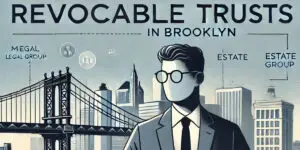Amending Trusts For Pets
When getting ready for your pet’s life later in your passing, you have a scope of choices – from simplifying, non-lawful plan, to making a perplexing trust, to leaving your pet with an association devoted to dealing with pets later a proprietor’s demise.
To make any of these game plans, you really want to observe an individual or association that you trust to really focus on your pet. Also, that individual or association should do it. So regardless of which choice you pick, have a genuine discussion with your pet’s expected guardian concerning how to really focus on your pet and how costs will be met.
A more grounded, more convoluted, and more costly legitimate choice is to make a pet trust. With a pet trust, you can leave your pet, cash, and a lawful commitment to really focus on your pet. On the off chance that the guardian neglects to adhere to your directions, the individual can be sued. In your trust record, you portray how your pet ought to be really focused on in the event that you can’t deal with the person in question before your demise.
Assuming you’re not ready to find an individual both willing and ready to deal with your pet later you bite the dust, you’re not without choices. Programs exist the nation over that permit you to pass on your pet to a dependable overseer later you pass on. For instance:
The least demanding and most adaptable plan for your pet doesn’t need formal legalities. Assuming you completely trust your agent and the individual who will really focus on your pet, and you are sure that no other person will guarantee responsibility for the pet, just let your agent know who should really focus on your pet when you pass on. However long everybody in question is in arrangement, there will be a walk in the park for your pet to go to your picked guardian.
FAQ
- What is medicaid fraud?
Medicaid fraud is simply false information to get Medicaid to pay for all the services needed for yourself or someone else.
2. What is a pour-over will?
A pour-over Will is a Will written and documented stating the actions needed to be done through the trustee which will be transferred to him or her. The truster is someone who’s responsible for many assets to be taken care of or sent to assigned beneficiaries.
3. When someone dies does their debt go away?
No, when someone dies, if that person had any debt, creditors will still ask for the money back adding more credit to the accounts. After the designation of the person’s assets during court, payment of debts will also be announced to whoever the court would call responsible. So a family member, spouse, or close friend will continue with paying everything you owe which is why you should make an estate plan to prevent this sort of conflict.
4. Does a trust protect assets from a nursing home?
Yes, as long as you transfer funds towards your rent, mortgage, or assistant living instead of going to a nursing home.
5. Does transfer on death avoid probate?
The transfer of death only makes the probate process much more difficult having you provide additional details and reason for the transfer. This makes the process longer and if it’s longer, it’ll be more expensive. The only way to avoid probate is through a trust because everything would be set up or planned ahead, especially the transfer of death.
6. What does an elder care attorney do?
An elder care attorney has the expertise in arranging any necessary goals to whoever the elder being served needs. It can go along with not just estate planning but also medical care proxies, elder abuse, or dealing with ownership of spousal belongings. This is all regards to any senior over the age of 50.
7. If my spouse dies do I get his social security and mine?
Because of the laws of Estate Planning, there’s something labeled, the surviving spouse clause where if one spouse dies, the surviving spouse gets his or her assets. The only assets not provided would be government funds that the spouse still owes or would actually lose the entire thing because of labeled ownership unless there’s a Will stating rights to owning these finances.
8. How do I know if my unemployment claim was approved in NY?
After applying for unemployment at the official NY government website, ny.gov, you should receive a letter towards your home address 2 weeks after applying stating how much unemployment you should be received. Though that’s if you get approved. If not, you would receive the same letter in the same amount of time saying you’re ineligible due to certain dynamics in your life that the government won’t give you many benefits.
9. Do you need a lawyer for advance directives?
These forms can be created by yourself as long as you are over the age of 18 but have the same disadvantages of handwriting your own Will. This means that advance directives shouldn’t be handwritten to prevent future fallacies due to not being able to read the file or putting information that has nothing to do with what’s needed. So you can make your own advance directives but it’s recommended to get a lawyer to guide you in the process.
10. Does a trust override a will?
No, a trust has different functions than a Will but a trust secures the Wills needs for whatever is listed.









